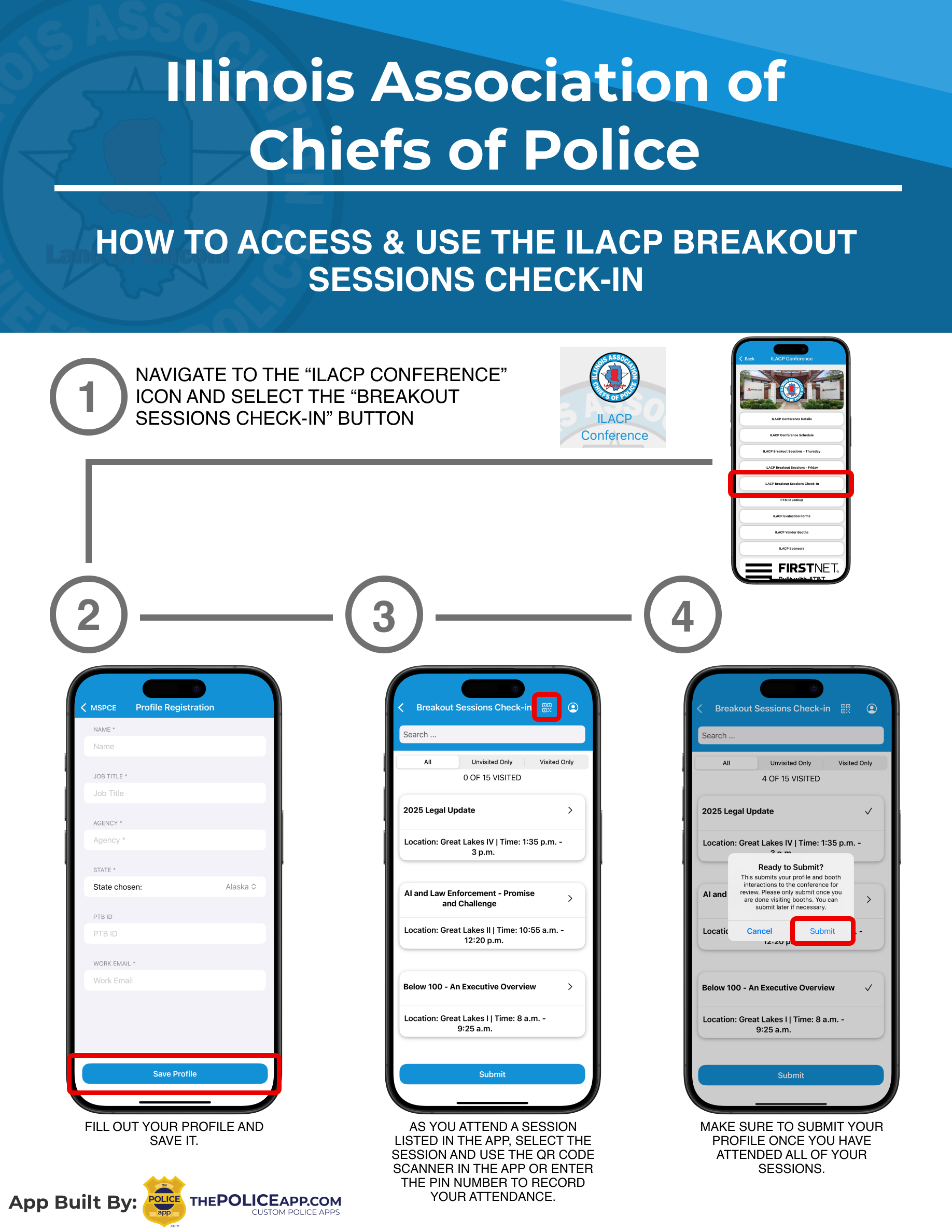2026 ILACP Conference Speakers
Keynote Speaker: Joshua Bitsko
"Police Resiliency and Critical Incident Mindset"
Thursday, April 30
8 a.m. - 12 p.m.

Presentation Title: Police Resiliency And Critical Incident Mindset Training
Presentation Description: Josh Bitsko was one of three officers who breached the suspect’s room during the 1 October Mass Shooting in Las Vegas, the deadliest mass shooting in U.S. history. That moment did not just test tactics. It tested the emotional core of what it means to be a first responder.
Fear, anxiety, and uncertainty are real, yet they are rarely talked about in law enforcement culture. Officers are trained to suppress these reactions, but those emotions still show up, in the moment and long after the incident ends. If we do not prepare our people for that emotional reality, we are setting them up to struggle when it matters most.
This course bridges the gap between tactics and mindset. Josh combines firsthand experience in high stakes critical incidents with real world insight, science based techniques, and practical tools officers can apply immediately. The training focuses on building personal resilience under pressure, improving decision making in real time, and strengthening the mental clarity needed to perform when everything is on the line.
Participants will learn:
-
What to expect emotionally before, during, and after a critical incident
-
Practical, science backed strategies to manage stress in real time
-
Tools to support recovery and build long term resilience
-
How to enhance tactical performance and stay mentally sharp under pressure
-
What agencies can do to support wellness and reduce internal stress that compounds trauma
This course is ideal for officers, supervisors, command staff, and peer support personnel who want to lead with clarity and build a culture that values both readiness and resilience.
Plenary Presentation: Chris Cowan
"Leveling up your leadership, 1 Degree; by LIVING your legacy, not leaving one"
Thursday, April 30
1:30 p.m. - 5 p.m.

- Presentation title: Leveling up your leadership, 1 Degree; by LIVING your legacy, not leaving one
- Presentation overview: Police leadership and management start with understanding the difference between success and significance and the difference between living a legacy and leaving a legacy. So, what is your strategic and dynamic readiness to leveling up your leadership? Water boils at 212 degrees. It can cook at 211 degrees; it is successful at 211. What will it take for you to go from success to significance and level up your leadership that one degree. This professional development session will take you out of your comfort zone and challenge your thinking. We will help you build your capacity, your passion and purpose, your effectiveness as a leader and a clearer understanding of being a predictive and preparative leader. The presentation includes an interactive power point and session that will provide you with practical, applicable skills to being an executive who is better today than you were yesterday. Focusing on passion, purpose and the profession.
BREAKOUT SESSIONS
*As in previous years, breakout sessions will be sent to ILETSB for continued education credit hours and mandated training credits.

8 a.m. - 9:25 a.m.
Course Title:
Speaker:
Room:
Course Description:
9:45 a.m. - 10:35 a.m.
Course Title:
Speaker:
Room:
Course Description:
10:55 a.m. - 12:20 p.m.
Course Title:
Speaker:
Room:
Course Description:
1:35 p.m. - 3 p.m.
Course Title:
Speaker:
Room:
Course Description:
|